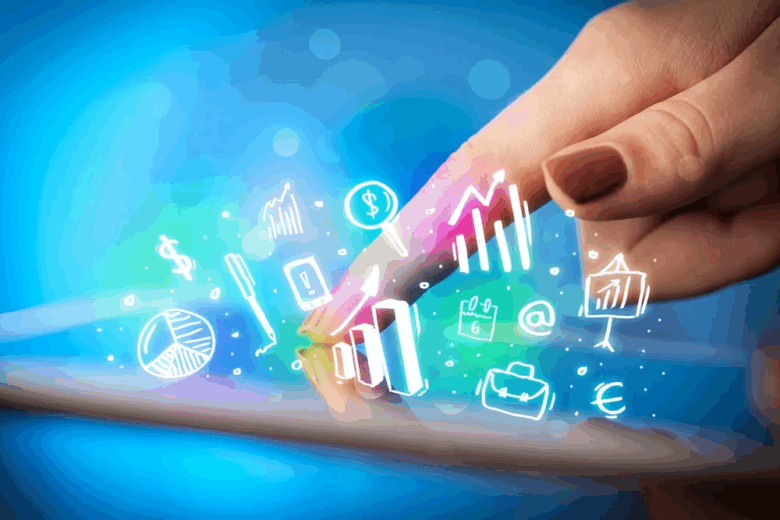Mental health and emotional well-being are becoming increasingly important in today’s fast-paced, technologically connected world. As more people realize the importance of mental health, many are looking for easily accessible ways to maintain their emotional balance. Digital tools have become powerful in this area, supporting mobile applications, internet platforms, and wearable technology. These tools help people more easily cope with stress, anxiety, and emotional problems by providing more convenient and personalized mental health support and connecting it closely to everyday life.
Guided Meditation and Mindfulness Platforms
Mindfulness and guided meditation help people reduce anxiety, improve focus, and promote emotional stability. Today, it is easier than ever for people to practice mindfulness through digital websites that specialize in these techniques. Such apps usually offer standardized courses on body awareness, breathing exercises, and mental management. They are suitable for both beginners and experienced users. These methods can gradually change people’s responses to stress and emotions by encouraging daily awareness, helping people maintain a calm and clear mind during the stresses of life.
Emotion Monitoring, Improving Emotional Awareness
Improving mental health starts with understanding your emotional habits. Digital mood-tracking devices allow consumers to regularly record their emotions and identify trends and triggers over time. Understanding how emotions change in response to daily events, sleep quality, or social interactions can help people better understand their mood. These findings can help consumers make better decisions and enable counselors or therapists to provide more targeted support. Emotional awareness can help people be proactive about their health and make changes before problems become more serious.
Counseling Platforms and Online Therapy
Digital tools have also changed the way people access professional mental health care. Online therapy systems connect people with licensed therapists via text, phone, or video conferencing. This flexibility makes treatment more accessible, especially for people with busy schedules or who live in remote areas. It also alleviates the stigma some people feel about seeing a therapist in person. These sites enable clients to find the therapist that best suits their needs, thanks to confidentiality and access to a wide range of expert resources. Online therapy is an important part of the digital mental health ecosystem and is just as effective as traditional therapy.
Wearable Technology for Stress Monitoring
Wearable technology has integrated mental health and stress tracking into its range of functions. These devices quantify stress by measuring physiological signals such as skin temperature, heart rate variability, and sleep patterns. Some devices offer real-time suggestions, such as guided relaxation or breathing exercises, when they detect elevated stress levels. Wearable technology can encourage mindfulness and early intervention by providing a physical perspective on emotional states. Objectively tracking stress can add a useful dimension to emotional self-awareness and keep users balanced in their daily lives.
Sleep Apps Promote Mental Resilience
Sleep has a direct impact on mental health. By analyzing sleep quality, duration, and patterns, digital sleep tracking technologies can provide insights and suggestions for improvement. These programs can identify issues like restless or insomniac sleep and suggest activities or habits to improve rest. Good sleep improves cognitive ability, temperament, and emotional resilience, and regular use of sleep apps can help people develop better sleep habits, which can improve their overall mental health. Incorporating sleep improvements into mental health plans can lead to long-term emotional balance.
Gamified Mental Health Tools for Engagement
Various digital tools have integrated gamification to enhance the enjoyment of mental health care. These systems motivate users to practice healthy behaviors regularly through challenges, rewards, and interactive elements. Gamification apps keep users engaged in their mental health journey, whether it’s daily breathing exercises, tracking emotions, or expressing gratitude. This lighthearted approach makes self-care feel like a fun and rewarding activity rather than a chore. Gamification can help consumers create daily habits that contribute to long-term emotional balance and personal fulfillment.
Personalization and Adaptive Technology
One of the key benefits of digital mental health solutions is the ability to personalize the experience based on user input and behavior. Many apps tailor their content, reminders, and suggestions to the user’s specific needs and preferences. This personalization makes the experience more relevant and inspiring. As the software becomes more sensitive to the user’s habits and challenges, it provides timely encouragement and actionable insights. Adaptive technology tailors mental health support to enhance personal development, eliminating the need for a universal solution.
Integration into Daily Life and Routines
Integrating digital mental health tools into daily life and forming a habit maximizes their effectiveness. Many apps and devices can be integrated into a personal calendar through reminders, smart home connectivity, or automatic tracking. This seamless integration allows consumers to create a wellness regimen without disrupting their daily schedule. Starting the day with a gratitude exercise or ending it with a sleep story can significantly improve emotional balance through small actions. Their simplicity and consistency inspire long-term and environmentally friendly mental health practices.
Conclusion
Digital tools have changed people’s attitudes toward emotional and mental health. From wearables and community websites to meditation apps and online therapy, these tools offer accessible, customizable, and fun ways to support better mental health. As technology has evolved, so have the opportunities to integrate emotional care into daily life. Using these tools can help people actively promote resilience, self-awareness, and emotional balance. Whether it’s managing stress, improving sleep, or building social connections, digital technology can help consumers live better, more balanced lives.
FAQs
1. Can digital mental health tools replace psychotherapy?
While digital technologies can help with daily mental health management, they cannot replace professional treatment, especially for serious mental health disorders.
2. Which mental health apps can be used privately and securely?
While most trusted apps prioritize user privacy and data security, it’s a beneficial idea to review privacy policies and choose apps with robust data security policies.
3. Do we need to pay for mental health apps?
Many apps offer basic features for free; additional tools or content must be unlocked through optional premium packages. Some sites also offer financial support or discounts.
4. Can digital technology help with grief and anxiety?
Many apps are specifically designed to help users manage anxiety and depression through exercise, journaling, psychotherapy, and mindfulness techniques.
5. Which digital tool is best for my mental health?
Consider your specific needs—stress management, better sleep, connections to therapists—and look for well-reviewed, professionally recommended apps or solutions.




